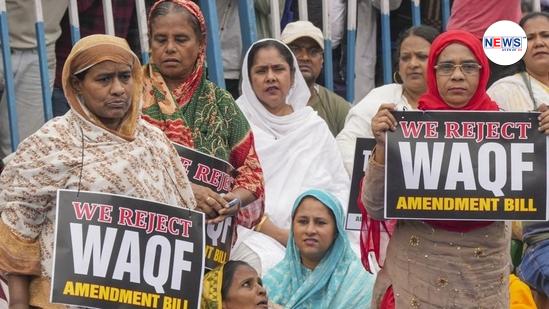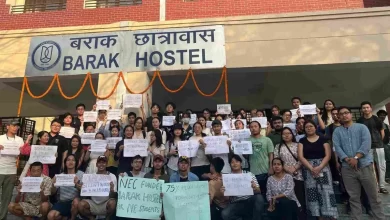
Waqf Act comes into force, Centre seeks Supreme Court hearing before orders on pleas against it
Centre has reportedly filed a caveat in the Supreme Court, seeking hearing before orders are passed on pleas challenging validity of Waqf (Amendment) Act, 2025, which was heavily debated in Parliament before its passage in Lok Sabha and Rajya Sabha in the recently concluded Budget Session.
Lawyers privy to the development said the petitions were likely to be listed for hearing before a bench on April 15 though it is not reflected on the apex court website as of now.
President Droupadi Murmu on Saturday, April 5, gave her assent to the Waqf (Amendment) Bill, 2025, and the Mussalman Wakf (Repeal) Bill, 2025. The Waqf (Amendment) Act came into force from Tuesday, the government said in a notification.
The Waqf (Amendment) Bill was approved by Parliament on Friday after the Rajya Sabha passed the legislation following a marathon 13-hour debate. Opposition parties strongly opposed the Bill, calling it “anti-Muslim” and “unconstitutional,” while the government defended it as a “historic reform” aimed at benefiting the minority community.
The Bill passed in the Rajya Sabha with 128 votes in favor and 95 against. Earlier on Thursday, the Bill was passed in the Lok Sabha, where 288 members voted in favor and 232 against.
In addition, Parliament approved the Mussalman Wakf (Repeal) Bill. The Rajya Sabha gave its approval, while the Lok Sabha had already passed the Bill. As a result, the Mussalman Wakf Act, 1923, has now been repealed.
Following the President’s assent, both pieces of legislation officially came in effect.
Please challenging Waqf Act
Multiple pleas have been filed in the Supreme Court, challenging the constitutional validity of the Waqf Bill, which is now an Act. Last week, Congress MP Mohammad Jawed and AIMIM president Asaduddin Owaisi moved the Supreme Court, challenging the constitutionality of the Waqf (Amendment) Bill.
Over 10 petitions, including those by politicians and the All India Muslim Personal Law Board and Jamiat Ulama-i-Hind, have been filed in the top court challenging the validity of the newly-enacted law.
Jawed’s petition argued that the Bill imposed “arbitrary restrictions” on Waqf properties, undermining the religious autonomy of the Muslim community. He claimed that it discriminated against Muslims by imposing restrictions not present for other religious endowments.
Jawed, the MP from Kishanganj, Bihar, who was a member of the Joint Parliamentary Committee on the Bill, also contended that it introduced limitations on creating Waqfs based on religious practice duration.
In a separate plea, Owaisi argued that the Bill stripped Waqfs of protections given to religious and charitable endowments of other religions, which he described as discriminatory and a violation of Articles 14 and 15 of the Constitution.
AAP MLA Amanatullah Khan has also approached the Supreme Court, seeking the Bill’s declaration as unconstitutional, citing multiple violations of constitutional provisions including Articles 14, 15, 21, 25, 26, 29, 30, and 300-A.
The Association for the Protection of Civil Rights (APCR), an NGO, has also challenged the Bill’s constitutionality in the Supreme Court.
The Rashtriya Janata Dal (RJD) also said it is set to challenge the Waqf Amendment Bill in the Supreme Court, with Rajya Sabha MP Manoj Jha and party leader Fayaz Ahmed filing a petition on behalf of the party on Monday.





